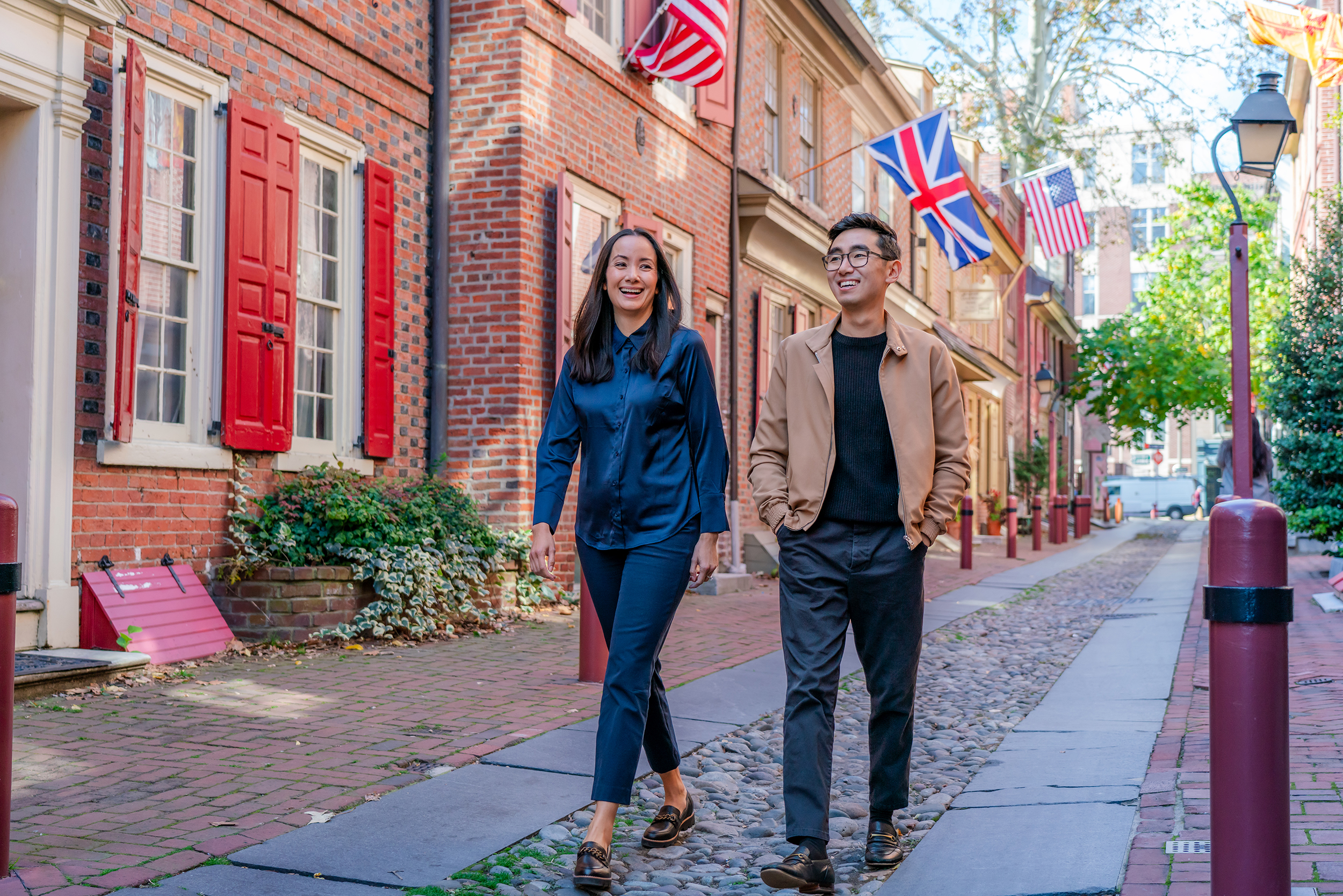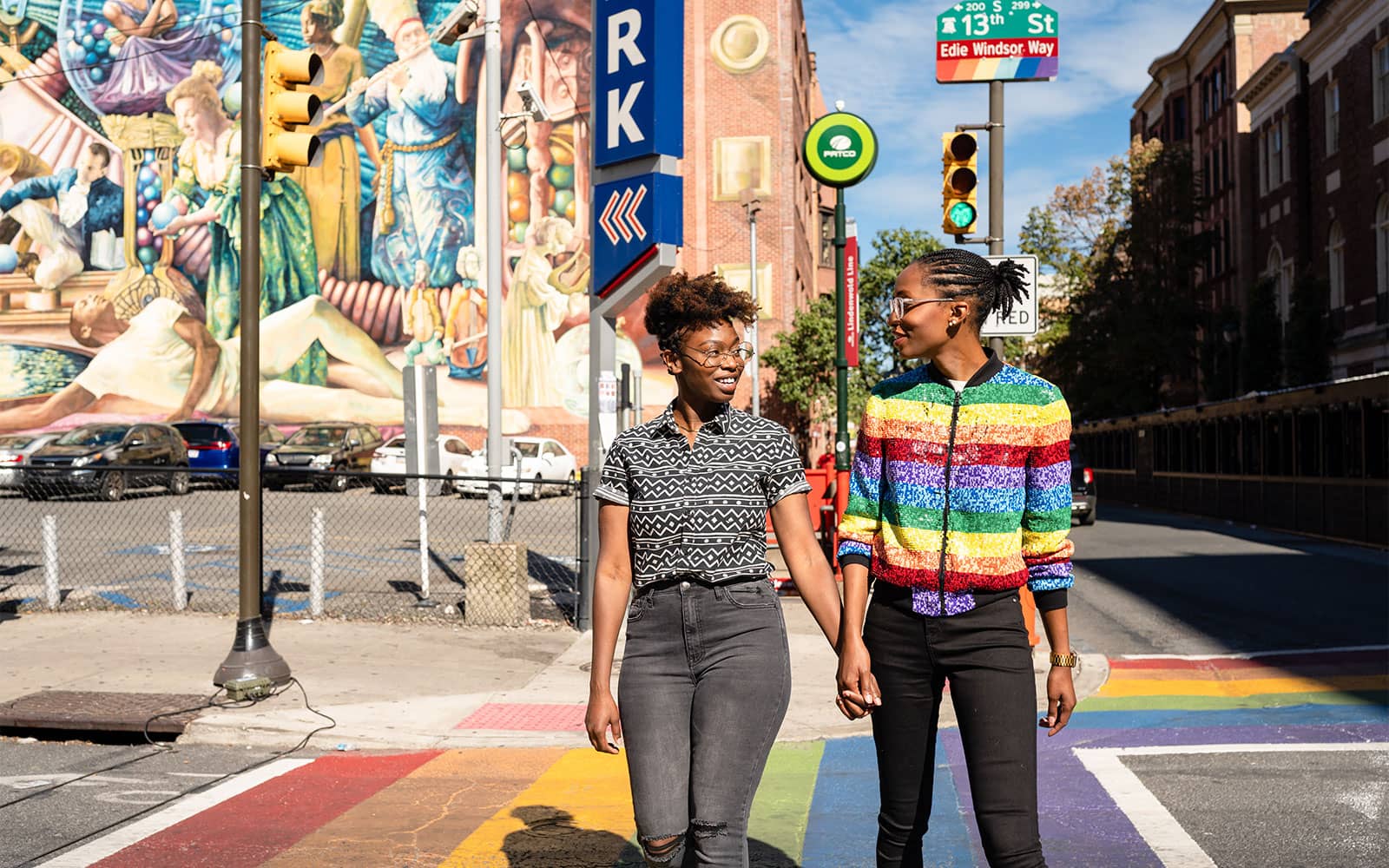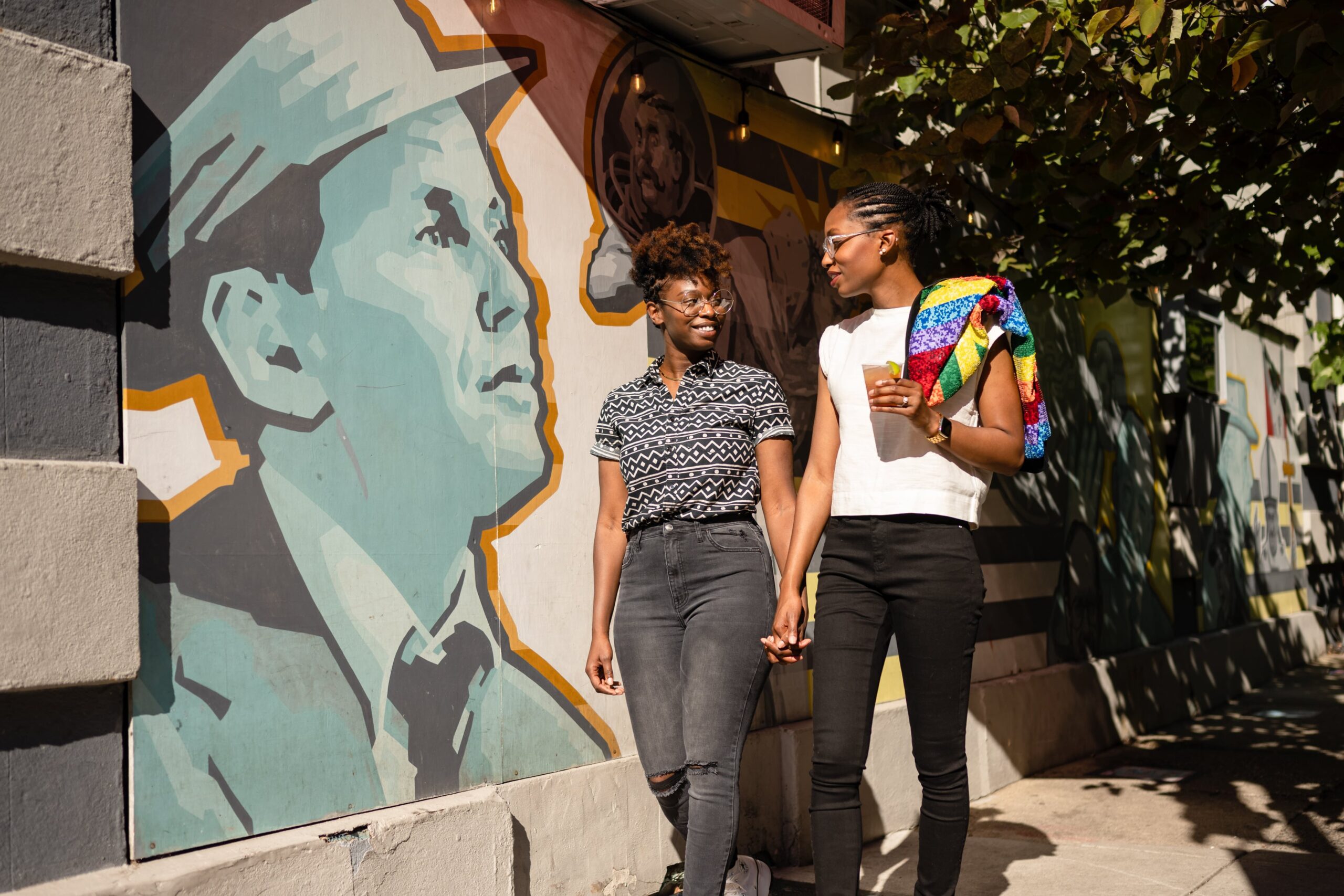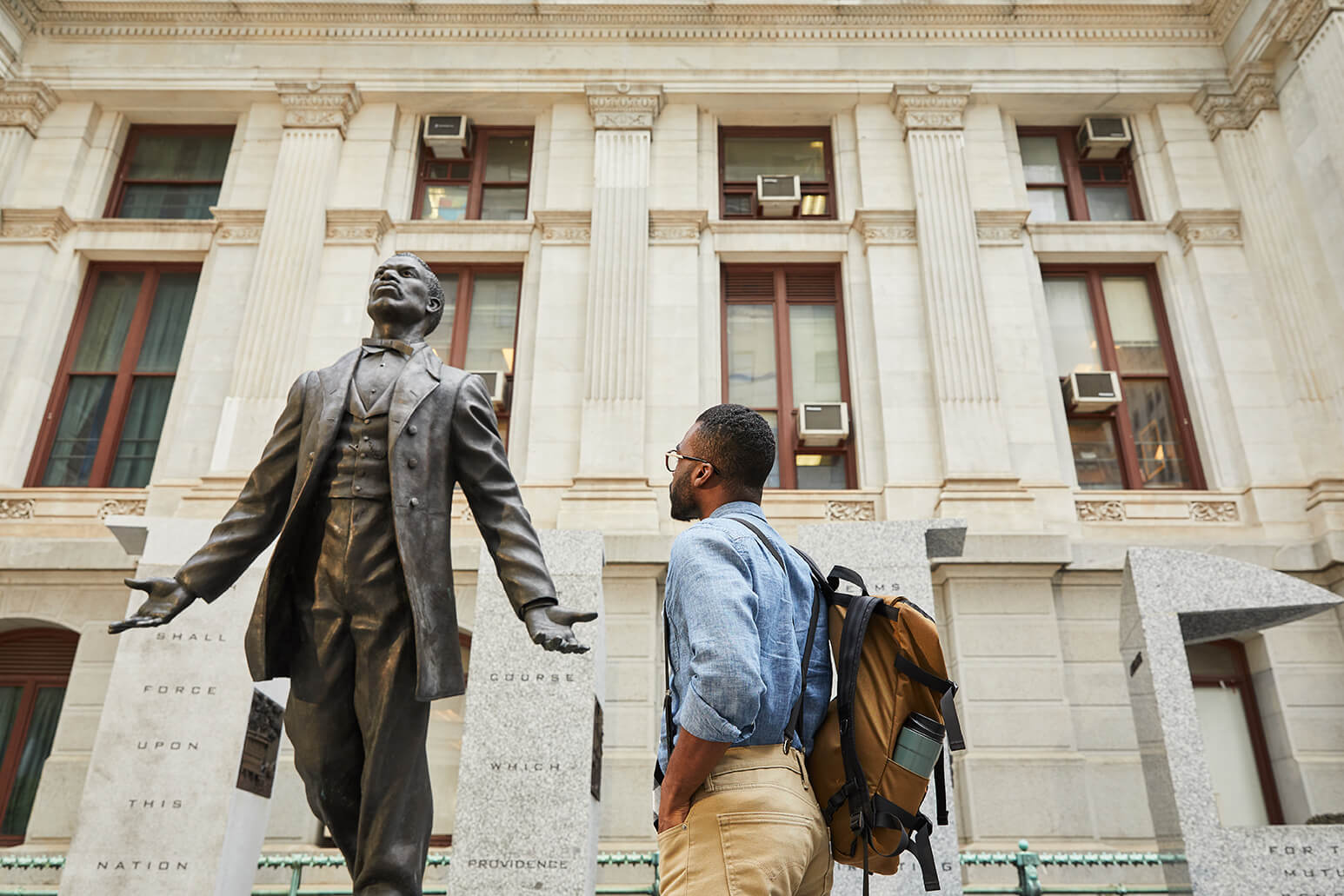Diversity, equity, inclusion, and accessibility (DEIA) is a priority in Philadelphia, a city striving to achieve the founding ideals of our country.
The City of Philadelphia has taken several steps to dismantle institutional and structural barriers, establish DEIA best practices in the public sector, and ensure the protection of marginalized groups. Since 2015, these efforts have garnered a 100-perfect score on the Human Rights Campaign’s Municipal Equality Index.
Certified Welcoming City
The City of Philadelphia is the largest city in the U.S. to be designated a Certified Welcoming city by Welcoming America. This designation is given to cities that have policies and programs in place that reflect the city’s values and commitment to making sure immigrants feel included and welcomed. The Certified Welcoming process includes a detailed self-assessment and in-depth audit of the city’s policies, programs, and services, resulting in an overall score. Full details for Philadelphia are available in the Certification Audit Report. The average score among Certified Welcoming cities is 55 points. Philadelphia earned 92 out of 100 points.
The Office of Diversity, Equity and Inclusion
The City of Philadelphia’s Office of Diversity, Equity and Inclusion (DEI) works to dismantle institutional and structural barriers and prioritize diversity, equity, and inclusion best practices in the public sector. The office helps build a diverse city government workforce, supports commerce in neighborhoods that have been harmed by unequal lending practices, and ensures that the City of Philadelphia is working with diverse businesses to fulfill needs for goods and services.
Divisions of the Office of Diversity, Equity and Inclusion include:
The Mayor’s Office for People with Disabilities
- Confirms compliance with the Americans With Disabilities Act and combats discrimination against individuals with disabilities
- Works to foster equitable working and living conditions for lesbian, gay, bisexual, transgender, and queer (LGBTQ) people
- Advocates for LGBTQ issues in all areas of city government and develops city policies regarding civil rights issues affecting LGBTQ people
Philadelphia Office of Immigrant Affairs
According to Pew research, the foreign-born population of Philadelphia grew nearly 70 percent between 2000-2016, making up about 15 percent of the city’s overall population. The Office of Immigrant Affairs (OIA) promotes the well-being of Philadelphia’s immigrant communities by developing policies and programs that provide opportunity and access to services and helps facilitate the successful inclusion of immigrants into the civic, economic, and cultural life of the city.
The OIA also includes two commissions—the Mayor’s Commission on Asian Pacific American Affairs and the Mayor’s Commission on African and Caribbean Immigrant Affairs—comprised of professionals and community leaders from these diasporas who advise the Mayor on issues and policies that are important to the respective communities in Philadelphia.
Philadelphia Police Department Policies & Training
The Philadelphia Police Department enacted a department-wide “Procedural Justice Framework Training and Accountability” program designed to ensure training and implementation of equity policies and protocols designed to safeguard the quality of life for all residents.
The LGBTQ Community-Police Relations
- Established to improve safety and communications between LGBTQ communities and the Philadelphia Police Department.
MacArthur Safety and Justice Challenge
- The MacArthur SJC aims to increase safety and racial equity while reducing the local jail population by 50%. The focus of the data-driven reform effort by the city’s criminal justice and community partner is to increase early diversion and deflection efforts, and to reduce racial and ethnic disparities at the point of arrest.
Philadelphia and Pennsylvania law protects an individual’s basic right to fair and equal treatment by public accommodations. Learn more about the Pennsylvania Human Relations Act and Philadelphia’s anti-discrimination laws.
Land Acknowledgement
For centuries, the land now known as Philadelphia was home to and cared for by native peoples. These include the Lenni-Lenape People of Lenapehoking and the Poutaxat (Delaware Bay). The city recognizes these Tribes’ strength and history of resistance to colonization. Learn more about the city’s land acknowledgement.



